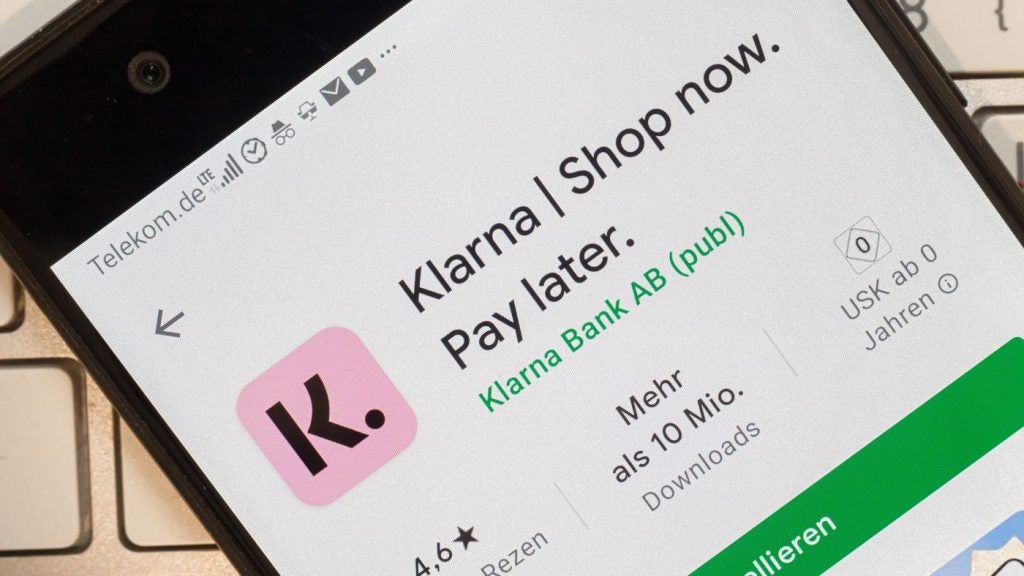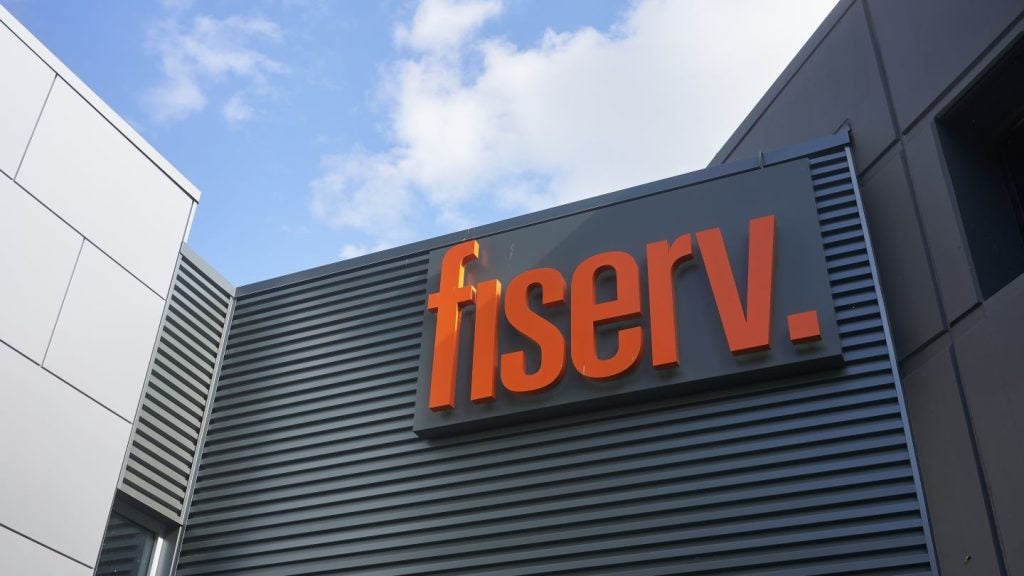The UK cards industry has been a market of
change, innovation and uncertainty in 2007. Debit use is on the up,
credit card use is falling while a host of niche products,
including prepaid, commercial cards and contactless, have started
to show their potential. William Cain reports.
payment card of choice, although there are signs credit could be
ready to make a comeback in 2008. Recent credit card figures from
the Bank of England showed lending started to increase in the
second and third quarters of 2007. And, in a research note earlier
this month, analysts Keefe Bruyette & Woods (KBW) said the UK
credit market was showing signs of stabilising, although it was
still underperforming the US.
England and APACS, the UK payments association, debit cards
continued to outperform credit and charge cards in both card
issuing and overall spending in 2007. Around 71.7 percent of all
plastic card purchases were made on debit in the third quarter of
2007, compared to 70.1 percent in the third quarter of 2006. The
number of adults holding a debit card was 41 million at the end of
2006, making up 84 percent of the population over 16, according to
APACS figures. And the payments body expects the popularity of
debit to continue: it predicts personal debit card purchases will
double over the next 10 years to 9.2 billion payments, worth £410
billion. Personal credit card purchases are expected to rise to 2.7
billion payments, worth £162 billion.
“People are increasingly comfortable with the convenience and
security that debit provides. People have started to realise that
instead of queuing up at an ATM, debit cards can be used for nearly
everything.”
was below 75 percent was 16- to 24-year-olds and in socio-economic
group E, the bottom socio-economic group in a survey by APACS.
APACS said younger age groups may hold an ATM-only card rather than
a debit card, while adults in socio-economic group E may rely on
state benefits paid in the post office as their chief source of
income and hold only a basic bank account.

Credit cards: mixed messages
The biggest issue in finance in 2007 has been the subprime crisis.
Subsequent liquidity problems have forced card issuers to reassess
their credit card businesses, and the UK market has shown clear
signs of frailty. Earlier this month, Egg, the internet bank owned
by Citigroup, announced it would withdraw the credit cards of
around 161,000 customers to cut down on risky lending (see Egg
incurs customer wrath). At the end of 2007, Discover Financial
Services wrote down $422 million of intangible assets in its
Goldfish credit card business (see Troubled goldfish is sold). It
blamed continued disruption in UK financial markets and the need to
reduce loan exposure to the country.
by KBW show the market is still in an unpredictable state.
Charge-offs, funds owed but unlikely to be repaid, appear to be on
the way down, but delinquencies, payments not made on time, are on
the up. In a research note, KBW analyst Sanjay Sakhrani said the
deterioration in the UK market was reminiscent of what occurred in
the late 1990s in the US, when credit became more socially
acceptable and consumers became more accepting of filing for
bankruptcy. But he added the UK market was showing signs of
stabilising in the early part of 2008, after a volatile 2007.
its peak in 2004, driven by new product offerings from issuers,
attractive loyalty programmes and balance transfer offers and
improvements in the card acceptance infrastructure.
has weakened, driven by higher interest rates and more people
shifting to debit. In 2006 the amount lent on credit cards fell
£1.8 billion, the first decline recorded in the UK, according to
the British Bankers Association (BBA).
How well do you really know your competitors?
Access the most comprehensive Company Profiles on the market, powered by GlobalData. Save hours of research. Gain competitive edge.

Thank you!
Your download email will arrive shortly
Not ready to buy yet? Download a free sample
We are confident about the unique quality of our Company Profiles. However, we want you to make the most beneficial decision for your business, so we offer a free sample that you can download by submitting the below form
By GlobalData
Regulation hits profitability
Regulation also weighed on the credit card industry in 2007, and
threatens to do so again in 2008. In April 2006, the Office of Fair
Trading (OFT), the UK government’s consumer protection agency,
deemed default fees over £12 as excessive, claiming they led to UK
customers being overcharged by around £300 million a year.
default charges from an average of £20 before the ruling to below
the new £12 benchmark, and during 2007 issuers looked at ways to
recoup lost revenue. One of the most obvious examples came from
Lloyds TSB, which in February 2007, introduced a £35 a year charge
for low card use.
estimated it would take a £60 million income hit because of the
reduction of default fees.
predicted the effect of actual and pending regulation could cost as
much as £1 billion annually to UK’s credit card industry. PwC said
it estimated it would take a 2 percent hike in interest rates to
make up for the lost revenue. That estimate includes the potential
impact of an upcoming OFT ruling on interchange, scheduled for
March, which would squeeze margins even tighter.
credit card market, John Struthers, professor of economics at the
University of the West of Scotland, said card companies will look
to differentiate themselves in other ways.
in the market, which means it’s more about product offerings than
price. And along with greater competition and tighter credit
conditions, we are seeing better informed users of cards because
the problem of overcharging has been highlighted by the OFT. Card
users will be seeking the best deal possible, which will mean card
companies will focus more on non-price competition to differentiate
their products.”
market was likely to come from innovative product offerings, like
ethical and environment-linked products, as well as contactless
technology. It also said annual fees would become the norm because
of the difficult credit conditions.
Prepaid cards: showing potential
Prepaid cards are seen as another way of moving cash payments onto
cards, and the industry is expected to become increasingly
significant in the UK. Over the past year major issuers such as
Barclays and Lloyds TSB have rolled out prepaid travel card
products, although the majority of prepaid cards on offer in the UK
come from independent prepaid solution providers.
and planning for Northern Europe, told CI: “Prepaid is a tremendous
engine of growth. It is enabling parts of the population to get the
benefits of a credit card, who might not otherwise have access to a
bank account.”
was Metavante’s acquisition of Nomad, the British card processor
(see CI 394). Metavante, the US-based banking and payments
technology provider, paid £29 million for Nomad, which will give it
access to the UK and European prepaid markets.
market, PrePay Technologies, was also bought in 2007. Accor
Services, part of the French hotel and services group Accor, paid
£50 million in a deal which will extend PrePay’s reach across
Europe.
it had launched five new programmes a week in 2007 across Europe,
and had issued 7 million cards, although exact figures for the UK
were not available at the time of going to press.
Innovation: contactless trials
The development and introduction of contactless payments has
undoubtedly been the innovation of 2007 in the UK cards industry,
with mobile payments piggybacking on the back of that technology.
Contactless technology aims to replace cash payments under £10,
transactions which make up 80 percent of the £250 billion of
transactions made in cash.
measure of uptake of the technologies, had increased 50 percent in
November and December (see CI 394). But with Visa merchant
acceptance at only around 3,000 terminals, it still has some way to
go before contactless reaches industry estimates of 1 million
merchant acceptance points and 5 million cards issued by the end of
2008, as predicted by APACS.
payment card which features credit card functions, compatibility
with public transport network Transport for London and contactless
technology.
also working on mobile payments trials, which allow consumers to
buy goods and services using their mobile phone like a contactless
card, swiping it over a reader to pay.
development, especially mobile payments. But as the systems have
worked successfully in Japan and the US, the only thing likely to
scupper the programmes would be a lack of customer and retailer
demand. It is also not yet clear how revenues would be shared
between telecom providers and issuing banks in the UK if m-payments
took off.
Commercial cards show strong growth
Commercial cards have been one of the big growth stories in the UK
market in 2007. In its full-year results earlier this month, Visa
reported commercial card spending increased 22.9 percent at the
point of sale to £56.8 billion (see CI 394). The number of cards in
issue increased 20.2 percent to 9.7 million.
growth. MasterCard’s Steeley said: “We have seen strong growth in
commercial payments and we would expect to see it to continue to
show double-digit growth in the future at a market level.”
Fraud on the decline
Card fraud in the UK has been on the decline for the last two
years, falling from a high of £508 million in 2004 to £428 million
at the end of 2006. Britain has been one of the global leaders in
the introduction of chip and PIN technology, which has been one of
the key factors in the declining level of fraud. The migration of
card transactions from magnetic stripe and signature payments has
seen face-to-fraud at the POS fall 47 percent.
the global leaders in reducing fraud. But he said the industry had
to remain vigilant.
balloon: when you squeeze it in one place it squirts out somewhere
else. Although we have seen face-to-face fraud falling in the UK,
if you take the card to a country where there is no chip and PIN
network you are back to square one. One of the ways we see fraud
increasing is through illegal card use abroad.”
initiatives to reduce growing levels of card-not-present (CNP)
fraud, which has increased consistently since 1998 with the
increased popularity of online payments. It increased 16 percent
between the end of 2005 and 2006, valuing CNP fraud at £212.6
million, around half of all fraudulent card transactions.
Visa work along the same lines, allowing customers to set up an
extra password before a transaction is completed online for added
security.

Barclaycard
As of September 2007, Barclaycard had a 16 percent share of the
credit card market.Barclaycard had 9.6 million customers at the end
of 2007, a decline from 9.8 million in 2006 and 11.4 million in
2005, which it put down to the closure of inactive accounts. That
figure will be boosted by the acquisition of Discover’s Goldfish
credit card business for £36 million. In 2006, the business’ profit
before tax fell 40 percent, from £640 million in 2005, because of
higher impairment charges and the expansion of the business
overseas.
technology through its OnePulse offering this year, it has also
focused on green and ethical products. In April, Barclaycard
launched Breathe, a credit card which donates 50 percent of its
profits to environmental causes. It said the scheme would guarantee
£1 million of donations in its first year. Barclaycard also
announced plans to launch a Breathe Easy card in 2007, aimed at
helping tackle household carbon emissions by providing incentives
for customers to invest in making their homes more energy
efficient. In May 2007 it launched a carbon neutral charge card
through its business division for the staff of business advisory
firm Deloitte.
Royal Bank of Scotland (RBS)
As of September 2007, RBS had a 9 percent share of the market, with
around 11 million cards in issue, made up of both RBS and
NatWest-branded cards. RBS opened around 1 million new credit card
accounts in the first half of 2007. RBS has also been one of the
pioneers in mobile payments and contactless technology, working
with MasterCard. It made the UK’s first contactless payment in
London in August, marking the start of its programme, which is
available to RBS and NatWest customers, as well as Mint cardholders
(Mint is its credit card subsidiary). RBS also became the first
bank to carry out a successful m-payment transaction in Europe in
November and is running an internal trial at its offices. RBS plans
to launch a public trial in the next few months.
HBOS
HBOS had a 7 percent share of the credit card market as of
September 2007, adding 961,000 new accounts, including those from
joint venture partners. It has registered around 1 million new
accounts a year for the last six years. CI estimates it has around
8 million customers in total, including joint partners.
a contactless scheme, which it launched in November. It has issued
around 25,000 cards to customers across London in the initial
programme.
subsidiary, offered what it claimed was the longest 0 percent
introductory offer on the market, with no interest paid on
purchases for 15 months. It also offers 0 percent for six months on
balance transfers, with a 3 percent up-front fee.
good causes through its charity cards, which were launched 19 years
ago. Charities receive a £20 bank donation when a customer opens a
charity account and HBOS donates 0.25 percent of all purchases made
on the card.
Lloyds TSB
Lloyds TSB had a 10 percent share of the credit card market as of
September 2007. During 2007 Lloyds introduced AirMiles Duo, a
credit card account which offers two cards, a MasterCard and an
American Express card.
current and prepaid account for new arrivals into the UK, aimed at
the increasing Polish community. The Silver Account comes with a
Visa debit card, a number of insurance benefits, a savings account
and a prepaid card which can be loaded up and sent to a designated
family member abroad.
Change programme based on Bank of America’s Keep the Change scheme
in the US. It works by rounding up debit card purchases to the
nearest pound and depositing the difference in a savings
account.
MBNA
MBNA was acquired for $34.6 billion by Bank of America at the start
of 2006, has an estimated market share of 10 percent. It claims to
be the largest provider of co-branded and affinity cards in the UK
and works with a range of companies, from the World Wildlife Fund
to Liverpool Football Club, and operates the card schemes of Abbey
and Alliance and Leicester. MBNA has around 7 million customers in
the UK with over £12 billion in outstanding balances.
HSBC
As of September 2007, HSBC had a 7 percent share of the credit card
market. HSBC saw its share of the credit card market fall late last
year when it sold its Marbles and Beneficial credit card portfolios
in the UK to SAV Credit, a card issuer to near-prime and subprime
borrowers. The portfolios consisted of around 338,000 accounts and
cost SAV £385 million. HSBC said the businesses were no longer part
of its plans.
card balances had risen 5 percent to $13.7 billion, driven by an
aggressive marketing campaign. Growth was strongest in its Marks
& Spencer-branded cards, which made up 4 percent of the
increase.







